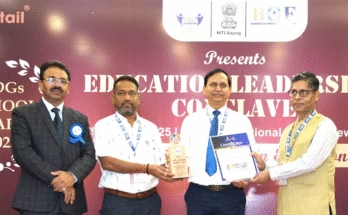 by Ashish Gupta
by Ashish Gupta
While Jharkhand struggles to provide adequate and uninterrupted supply of iron ore to its steel makers, Karnataka miners are demanding the right to export and sell excess iron ore to other states.
At a press conference on “Issues plaguing the iron ore industry in Karnataka”, on April 5, 2021, the Federation of Indian Mineral Industries (FIMI), southern region, an industry lobby, sought to overturn a crucial Supreme Court order of 2013. The order had set certain stringent conditions for miners as a pre-condition for lifting the ban on iron ore mining imposed two years ago. The industry body had sought the intervention of the central and state government to remove various restrictions like inter-state sale and export of iron ore imposed on the state.
Karnataka is the only state in India where the miners have no commercial freedom to sell their product. Their entire production of merchant miners has to be sold through institutionalised e-auction to domestic end users, the eligibility criteria set by the government. It is also the only state where export of iron ore and pellets made from Karnataka ore is prohibited.
The ban on iron ore mining in the state was lifted by the Supreme Court in 2013 in the Samaj Parivartana Samudaya & Ors versus State of Karnataka & Ors case after two years in which the mines of Bellary, Tumkur and Chitradurga were closed on account of their over-exploitation resulting in considerable damage to the environment. “We are taking a holistic view of the matter. We have suspended these mines keeping in mind the precautionary principles, which is the essence of Article 21 of the Constitution,’’ said the Supreme Court order of August 5, 2011.
While allowing the resumption of mining activities, the Supreme Court in 2013 had set certain conditions to redress the existing situation and give time to authorities to set up a monitoring system to ensure that the past mistakes are not repeated and there is no damage to the environment through over exploitation of the mines. However, what was seen as fair and reasonable yesterday was no longer applicable today, believes FIMI.
In fact, the Supreme Court had accepted most of the conditions laid down by the self-appointed Central Empowered Committee, which categorised mines into three categories, i.e., ‘A’, ‘B’ and ‘C’ on the basis of the extent of encroachment in respect of the mining pits and the amount of waste dumped outside their total lease area. The second set of recommendations pertained to the conditions subject to which reopening of the mines and resumption of mining operations were to be considered by the Court. While the 49 mines that fell in Category C were cancelled, in the case of categories A and B, the mines were cleared only with heavy penalties and after implementing a rehabilitation and resettlement policy.
Moreover, a ceiling of 25 million metric tonnes for total production of iron ore from all the mining leases in District Bellary was prescribed. A ceiling of 5 MMT for production of iron ore from all the mining leases in Districts Chitradurga and Tumkur together was also cleared.
The policy conundrum
While Karnataka miners are barred from exporting or selling to other states, there is no corresponding rule on eligible purchasers to exclusively source from the state’s e-auctions. Thus, even though there is adequate supply of iron ore in the state-production of around 45 million tonnes (MT) compared to a demand of 36 MT in 2021-22, Karnataka steel makers continue to import from other states and countries as well. Without any alternate market for sale, the Karnataka iron ore is witnessing a deep discount in iron ore prices- $50 per ton in the state compared to $140 per ton internationally.
The Supreme Court set conditions while weeding out illegal miners and helping to set up robust monitoring systems, also resulting in huge losses for the state. According to FIMI’s calculation, the estimated gross loss over a five-year period of Karnataka is approximately Rs 30,000 crores.
The suppressed prices are a double whammy for the state because it not only results in lower royalty and other levies, which brings down the revenue collections but also lowers the bid premium on ore extracted from recently auctioned captive mines, contends the FIMI report. The lower bid premium is over and above the other revenue losses.
FIMI officials were at pains to point out that the existing iron ore mining is no longer viable because of the cap on production and the mandated e-auction mechanism. It also resulted in unfair valuation of iron ore, which is almost 200 % lower in the state compared to international prices. Thus, miners had urged the central government to review the state policies and bring in proper amendments to benefit Karnataka.
Freeing the miners from the restrictions of inter-state selling could well turn out to be a boon for the Jharkhand steel companies, especially those without captive mines. Jharkhand steel makers have been facing a lot of hardships because the state has seen its iron ore production decline by 25% in FY 21 from 28.2 MT in FY 20 to 20.8 MT in FY 21. The scarcity had risen partly because many of expired leases of functioning mines had not been re-auctioned; state-owned steel major SAIL was not allowed to sell its iron ore lying unused in Jharkhand etc.
Hence, a demand-supply mismatch is likely to see significantly higher iron ore prices in eastern India than in other iron ore producing states, making Jharkhand-based steel players uncompetitive in the domestic and export markets. Allowing Karnataka iron ore miners to sell outside their state would not only help steel producers in other states, help the country achieve the 300 MT target by 2030 but also become Atmanirbhar in the true sense of the word.
(The views and opinions expressed in this article are those of the authors and do not necessarily reflect the official policy or position of any agency. The author Ashish Gupta is Director-Kaizzen Insights at Delhi Office can be contacted email: ashish.gupta@kaizzencomm.com)



